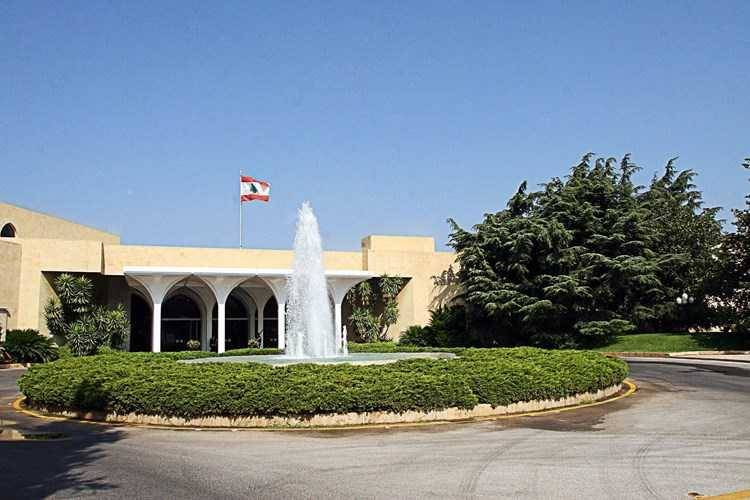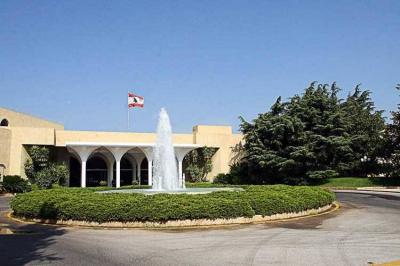All due processes are postponed, and the presidential elections have been deferred to the new year, if not longer. There is no reason for optimism regarding the possibility of moving this file forward during the holiday period as everyone is on leave. Only the dollar continues to fluctuate aggressively, draining the savings of Lebanese citizens and may exceed fifty thousand before the end of the current year, with no one taking action on the financial front.
Member of the Strong Republic Bloc, MP Ghiath Yzbek, pointed out that there is nothing on the horizon indicating the potential to advance this file during the holidays, as there are no data suggesting this direction. He asked in an interview with Al-Anbaa electronic newspaper: "Where will solutions come from as long as there is a group monopolizing the state's decision while waiting for external solutions? Given that we have a parliamentary council, it is the duty of the fellow deputies to fulfill their role and go to the council to elect a president for the republic instead of putting MP Gibran Bassil against former Minister Sleiman Franjieh and suffocating the country while waiting for a consensus on one of them." He ruled out any external assistance to complete this entitlement without positive indications from within, stressing that we cannot recover the Taif Agreement experience as its circumstances are different from what we are experiencing today. They agreed at Taif to end the war, and the countries that helped it back then are now different from each other, and Lebanon is no longer a priority for them. On the other hand, the obstructive team wants a president who is colorless and tasteless, whereas we want a president like medicine—bitter tasting but healing for the illness. A president who lifts Lebanon from its crisis.
Yzbek believes that the solution stems from the will within, so the 128 deputies must go to elect the president today before tomorrow and resort to the ballot box, refusing to allow them to impose a confrontational president to satisfy their interests. He rejected accusations that his political team is against dialogue, affirming that they are in contact and dialogue with all political forces. He urged the Hezbollah team to agree on one of them, Bassil or Franjieh, and engage in elections based on that, adding, "The country is collapsing, the dollar is nearing fifty thousand, and there is no glimmer of hope as long as Hezbollah tightens its grip on people's necks. They want a president like Michel Aoun or the collapse of the state, and recently they threatened UNIFIL's work through a bloody message, and there have been no arrests so far."
On another note, political readings of the presidential file, in relation to the positions of the components of the internal division, are more pessimistic. According to what a responsible authority said to Al-Jumhuriya, "the situation is going downward, potentially down to the lowest point, and may God save us from anything worse."
In response to a question about whether there are ongoing consultations regarding the presidential file, the authoritative figure said: "As you see, no one is talking to anyone, and no one wants to talk to anyone. We had relied on a moment of consensus entered by responsible dialogue among political components, telling them that if we sit and dialogue responsibly and with good intentions, we might agree in an hour, but they rejected this direction knowing that it would cost the country heavily, foremost among these costs is the wicked game of the dollar and people's bread."
The authoritative figure continued, "The depth of the crisis we are experiencing and the potential repercussions on the country and its people, we have recently awaited that it could create surplus responsibility among the parties, especially those directly concerned with the presidency. Unfortunately, however, it has been revealed before us as a surplus of frustrations and empty posturing from some insisting on staying behind the barriers of confrontation."
When asked if dialogue is still possible, he replied: "Dialogue is the only way out, and there is no way out of this crisis without such dialogue, but they do not want it. There is definite surrender to the logic of obstruction, and this will certainly extend the current decay over longer periods beyond the new year."
Regarding the real reasons for rejecting dialogue, the authority said: "Some parties want to usurp the presidency and consider it their exclusive right, refusing to believe that they are incapable of doing so, and thus obstruct. This is an adventure regarding the presidency and its position. There are some who believe that by escalating and avoiding dialogue, they can provoke external intervention to impose a solution domestically. This is also an adventure and a waste of time based on an illusion. As far as we know, no external entity is willing to initiate any coercive initiative because it knows it will explode the country, nor is it interested in any other initiative aiming at agreeing on a candidate. They told us: elect your president so that your country does not deteriorate further."
Additionally, informed political sources confirmed to Al-Jumhuriya that the main obstruction of the presidential file lies between the "Maroon duo," represented by "the Lebanese Forces" and "the Free Patriotic Movement," first, and secondly between this duo and the "Shia duo," concerning the primary candidates for the presidency. The "Amal Movement" and "Hezbollah" duo insists on nominating the head of the Marada Movement, Sleiman Franjieh, while the Lebanese Forces have decided to reject Franjieh’s nomination and endorse the nomination of Army Commander Joseph Aoun. On the other hand, the Free Patriotic Movement’s president, MP Gibran Bassil, has resolved to cut off the path for Franjieh and the Army Commander.
In the sources' view, the impasse between these parties is highly complex, and the possibility of untangling it to reach common ground seems impossible, indicating a long-term crisis. A solution is possible in four scenarios: first, the Shia duo could retract Franjieh's nomination and allow the Free Patriotic Movement and the Lebanese Forces to decide the fate of the presidential entitlement. This solution is unrealistic. Secondly, the Free Patriotic Movement could align with the position of "Amal" and "Hezbollah" by endorsing Minister Franjieh's candidacy, which is also unrealistic and does not seem forthcoming at this moment.
It should be noted that the statement issued by the political bureau of the Free Patriotic Movement after its regular meeting chaired by Bassil pointed out "the ongoing targeting of the movement on several levels." It expressed astonishment at "how the discussion regarding the presidency remains limited to proposing names while completely overlooking the project on the basis of which the president's name ought to be decided. While confirming the priority of holding presidential elections, the presidency is an inseparable entity; the president cannot be separated from his project, and from the prime minister and ministers who will participate in governance with him. This is what was expressed in the paper of presidential priorities issued by the movement to determine its position regarding the candidates based on their response and compatibility with these priorities. Furthermore, this paper allows for opening dialogue with the outside to secure a supporting framework for Lebanon, making the presidential entitlement an opportunity for international support for a state-building project. Thus, the political bureau believes that the president's term will be more capable and effective if coupled with a clear and internally and externally supported project, as the person of the president cannot compensate for the lack of a project."
Thirdly, the Lebanese Forces could accept Franjieh’s nomination, which is also an unrealistic solution as it undermines the Lebanese Forces’ principles, considering Franjieh as part of the opposing force contradicting their values and principles. In this context, it is noteworthy what the head of the Lebanese Forces, Samir Geagea, announced recently, holding the resistance axis responsible for the deterioration. He stated in a statement: "What is required from us as Lebanese, especially for those who recently voted for resistance axis parties, is to exert all our efforts on these parties to stop the obstruction of presidential elections and proceed as soon as possible to elect a new president—an action of renewal for the Lebanese Republic—starting with genuine recovery for the country, otherwise we will witness more deterioration, unemployment, poverty, and need, and this is on the conscience of the resistance axis parties... if they still have a conscience."
Fourthly, everyone may yield to the Army Commander's candidacy, which is deemed impossible. Leaving aside the "Lebanese Forces," his candidacy does not enjoy acceptability from the "Amal Movement" and "Hezbollah" due to their firm commitment to Franjieh, nor with the Free Patriotic Movement for reasons related to Bassil specifically, who recently accused the Army Commander of complicity in a coup. Moreover, these parties see a legal and constitutional barrier against nominating the Army Commander, manifesting in the need for a constitutional amendment requiring a third of parliament members, making this impossible within the current parliamentary landscape. While there may be a parliamentary majority supporting the constitutional amendment for the Army Commander, they do not reach the required 86 members, as opponents of this amendment outnumber the obstructive third (43 members) significantly.
The sources conclude by stating: "The situation is complex, and as long as internal solutions are blocked, and the external community has decided against initiating proposals steering the internal course towards agreeing on a president, only time can determine the ultimate situation. Since the ground in Lebanon is shifting, alongside the stances of conflicting forces, what may unfold in Lebanon could create a turnaround in the picture, bringing all parties down from their conditional trees to seek an exit."
Meanwhile, diplomatic sources revealed to Al-Jumhuriya concerning grave Western concerns about the future situation in Lebanon amid the deadlocked presidential horizon and the inability of Lebanese parties to choose a president. The sources affirmed that the international community views the presidential file in Lebanon as a responsibility solely for the Lebanese, and therefore, no initiatives should be anticipated. More precisely, one should not rely on anything nonexistent but rather on Lebanese efforts dictated by their country's crisis—a clear commitment to addressing it and electing a president before it is too late.
This was underscored by U.S. Assistant Secretary of State for Near Eastern Affairs Barbara Leaf during her meeting with the acting Foreign Minister Abdallah Bou Habib at the U.S. State Department in Washington, stressing the necessity for decision-makers in Lebanon to assume their national responsibilities and to move forward with electing a new president as a fundamental step towards tackling the accumulated crises. She stated: "What Lebanon is facing is different and more dangerous than its previous crises, and it is even more complex than the regional crises in the area that it is responsible for monitoring."




